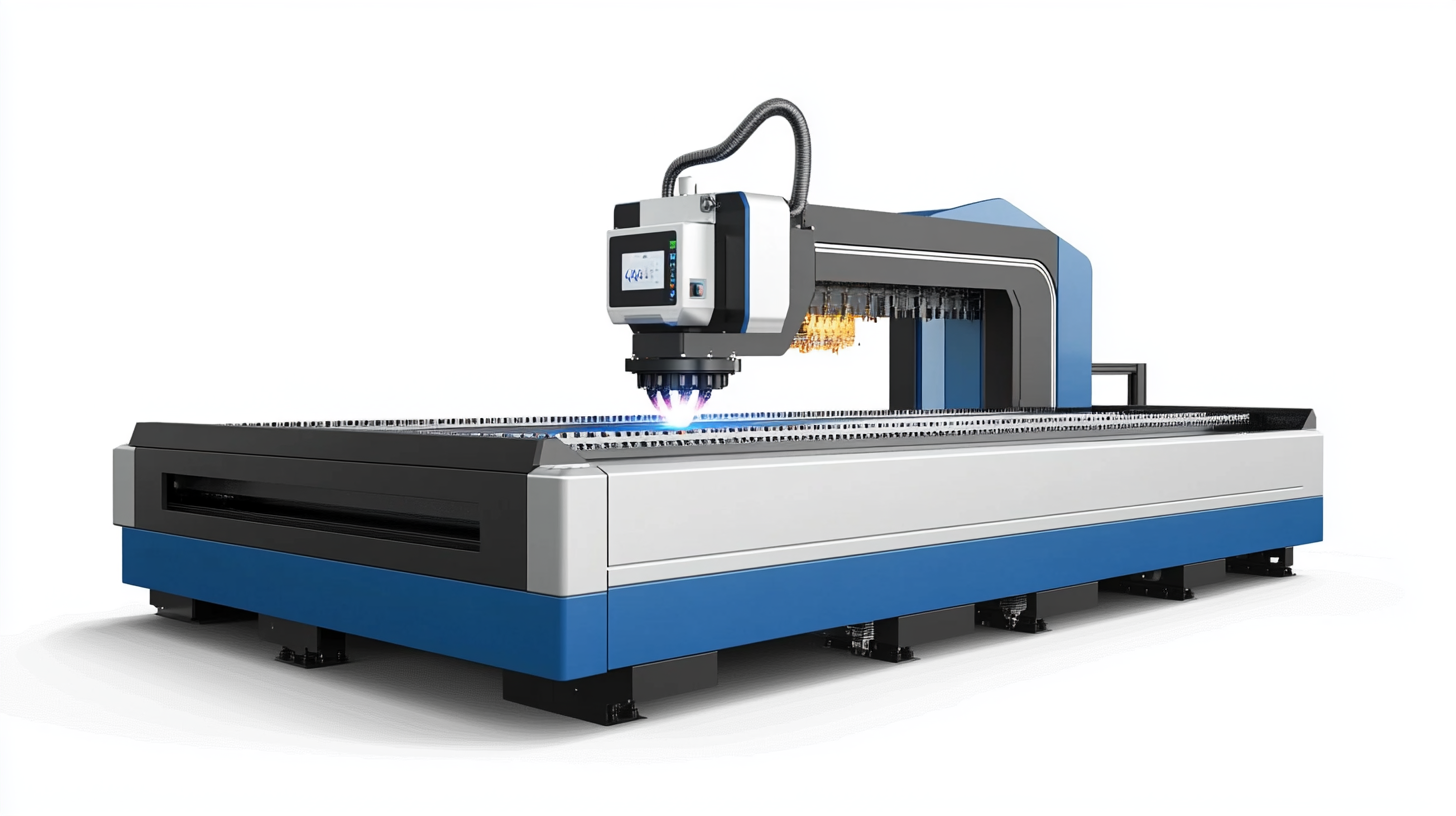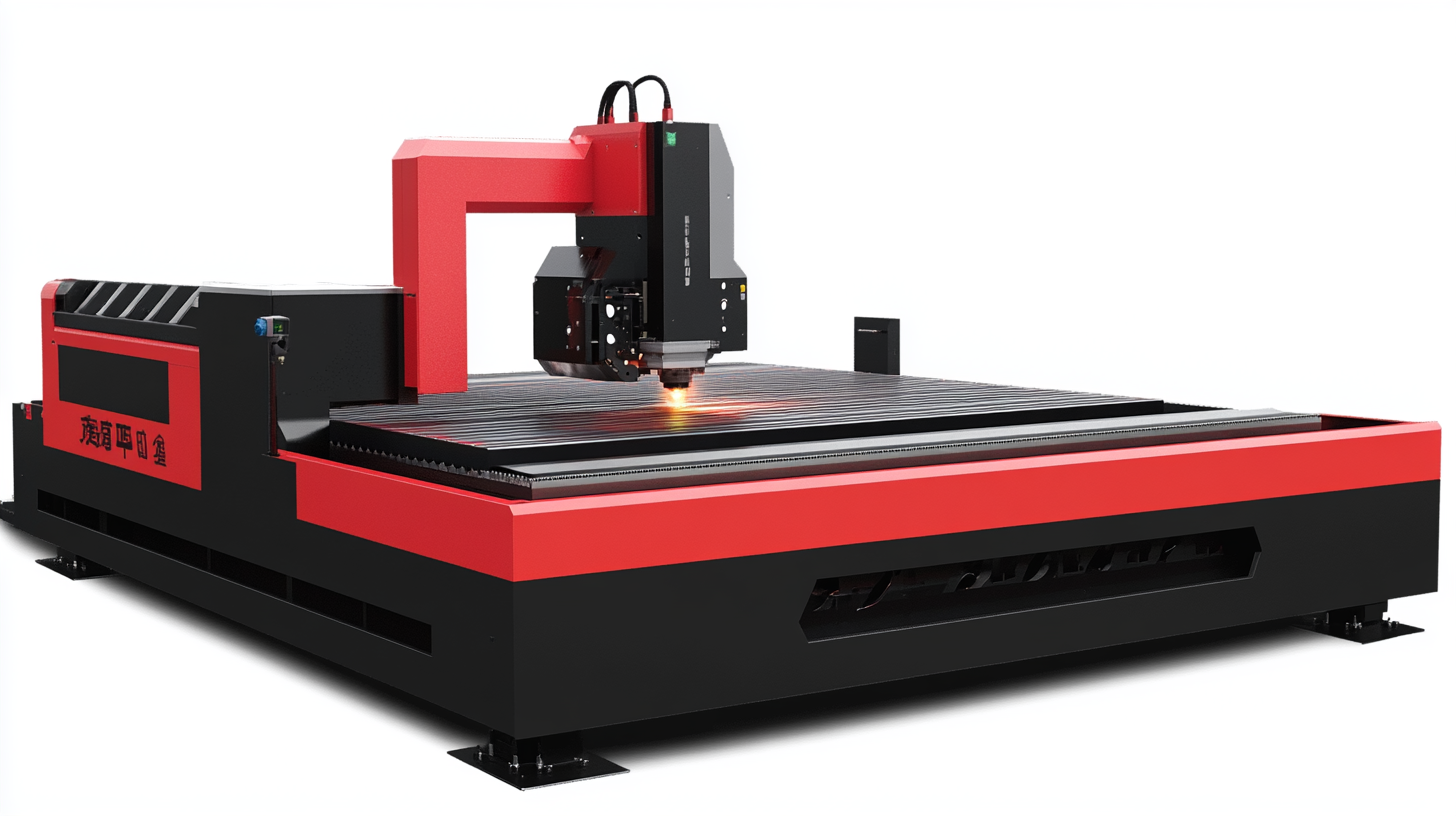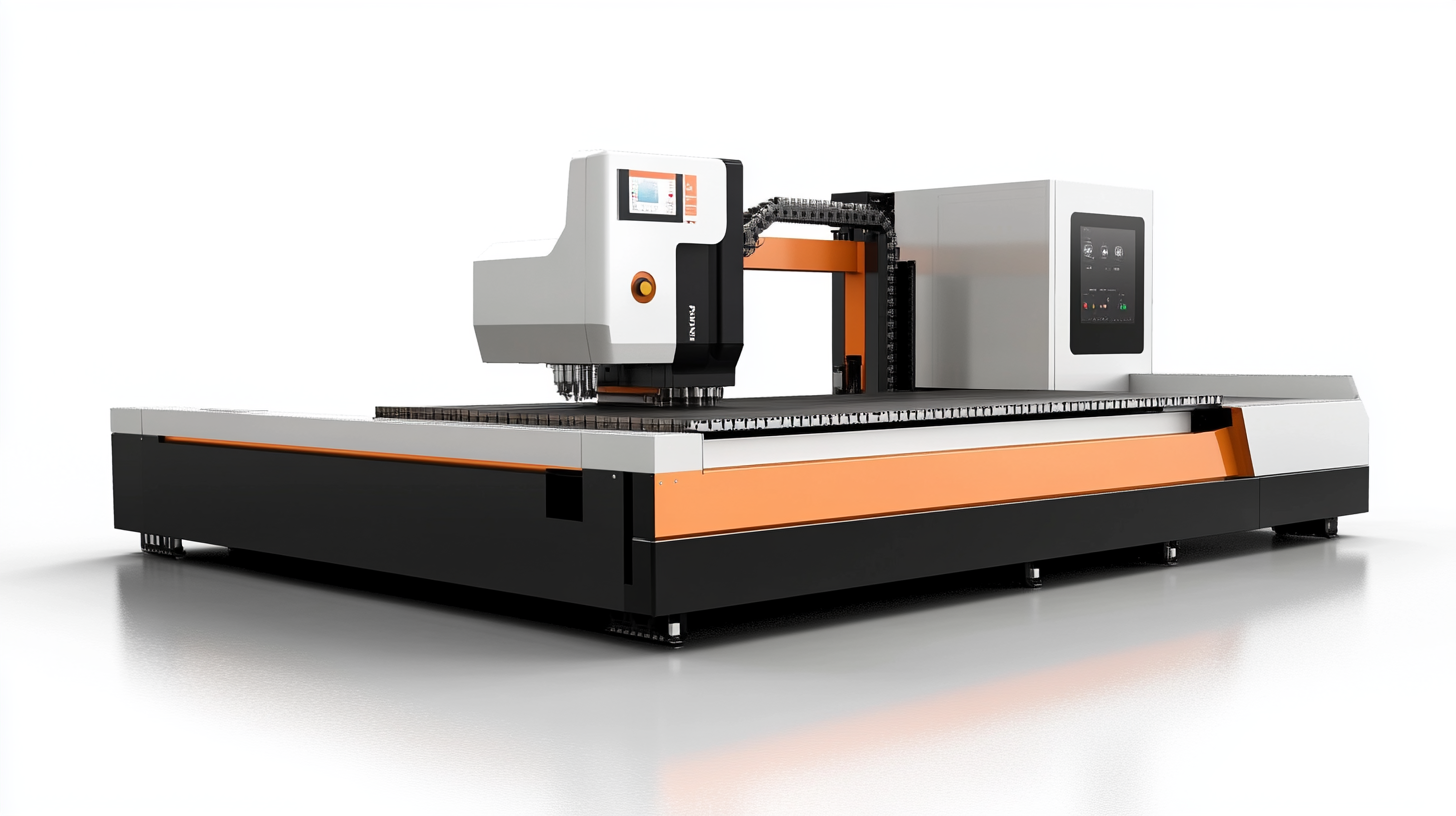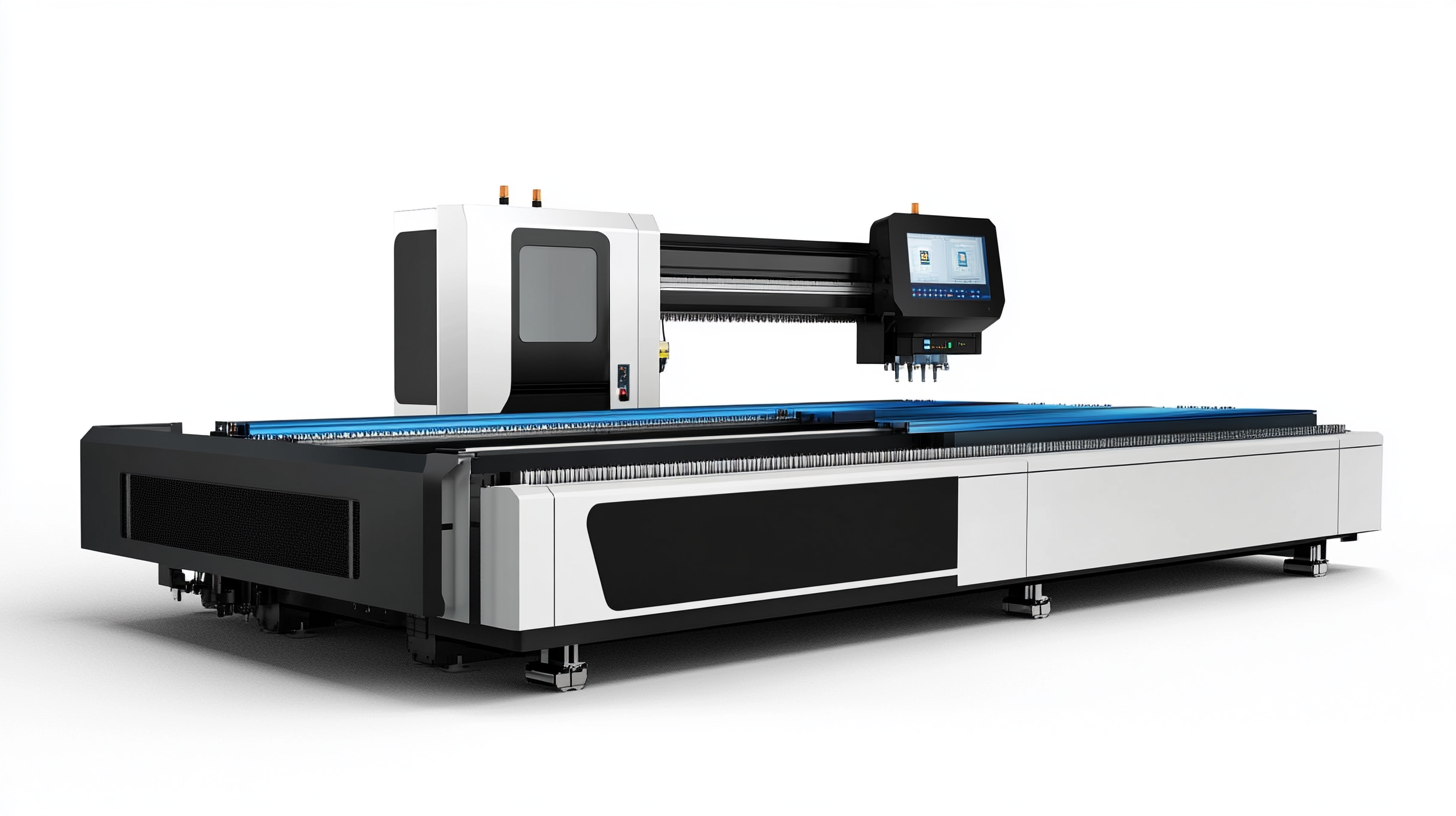Finding Reliable Suppliers for CNC Plasma Cutting Machines A Comprehensive Guide
As the production sector advances, the search for trusted suppliers of CNC plasma cutting machines alive with the aesthetics of an elixir and suitable for enhancing the production potential of a company has become a bottleneck for manufacturers. Such machines, which can be regarded as a marvel of engineering with high precision, are the mainstay of many industries, like automotive, aerospace, and metal fabrication. The ability to source good-quality CNC plasma cutting machines can make or break operational performance with cost savings and, of course, the cash flow at the end.
With an abundance of suppliers in the market, it is naturally difficult to tell which ones are the truly reliable ones. Factors such as the quality of products, after-sales support, and company credibility become very important. The fundamentals in this article provide the strategies and insights thus arming manufacturers and procurement teams in navigating the supplier selection process successfully to ensure informed decisions in investing in CNC plasma cutting machines. The evaluation perspective of suppliers, understood with key criteria, sets the base for businesses to establish long-term partnerships strengthening their production capabilities and success in their industries.

Understanding the Importance of Reliable Suppliers in CNC Plasma Cutting
In the dynamic relationship within the CNC machineries marketplace, someday, the emphasis on reliable suppliers within the landscape will intensify. Demand for CNC plasma cutting machines will swell correspondingly, with an average growth forecast of roughly 6% per annum over the next five years. Such unevenness in supplier reliability underlines even more the critical role played by suppliers in ensuring that production processes remain smoothly and continuously done and innovated. They do this by improving the productive use and making it last longer for CNC plasma cutting equipment. Furthermore, these sources link users to state-of-the-art technologies and the newest improvements in metal cutting processes. It قيمته around $100 billion in terms of projected global value in the coming years for the entire machine tool market that includes CNC technologies. Some huge segments, particularly forming and cutting of metals, will be the drivers behind this growth since applications of such industries penetrate many other industries like automotive, general machinery, and precision engineering. This just means that specific channels in auto markets will have an increasing demand for high-performance cutting capital in terms of manufacturing technology capabilities and waste minimization. Thus, manufacturers cutting high precision and quality CNC plasma cutting machines will be one among many that need to be counted for consideration by the end-user customers. Just like any other factor in the reliability of suppliers, the region presents differences. North America and Asia-Pacific lead all by far because of their very strong manufacturing base and highly advancing technologies. Strong suppliers in these regions offer an integrated set of support and service networks with co-collaborations and cooperative research and development initiatives. Finally, it is here that quality and reliability turns around in conjunction between new-age technologies making up a new generation of dependably critical suppliers who will become critical players for the successful adoption of CNC plasma cutting across a variety of applications.

Key Factors to Consider When Selecting CNC Plasma Cutting Suppliers
When choosing trusted suppliers of CNC plasma cutting machines, there are various factors to be considered in order to meet your very specific needs. Start with the market scale and industry study of the machine tools sector. An understanding of the market coverage, the competitive situation, and the growth forecast will give you leverage to spot suppliers that are both mature and poised for success in the near future.
The technical issues of the machine should also be seen in the negative light. The partitioning between conventional cutting methods and CNC (computer numerical control) technologies becomes very crucial. Suppliers for advanced CNC solutions would offer higher precision and efficiency for industries such as automotive, precision machinery, and transportation. Assess the suppliers' offerings with respect to metal cutting and forming capabilities corresponding to your application requirements.
Geographic considerations also affect your choice of suppliers. The present-day decorum of global supply chains explains the recent largescale migrations of the technology giants into India and Vietnam. Therefore, it is paramount to know how regional advantages are going to affect the availability and reliability of CNC plasma cutting machines. This will ensure that you guide your business towards success with a supplier that fits your operational needs and strategic direction just perfectly.

Evaluating Supplier Credentials: Certifications and Customer Feedback
The credentials of a supplier are one of the most important things to look for when trying to source a dependable supplier for CNC plasma cutting machines. Certification is, therefore, a major factor to weigh when determining the reliability of the suppliers you are evaluating. Established manufacturers will often hold industry-relating certifications like ISO 9001, which in itself is a certification confirming international standards in quality management systems. The presence of safety and compliance certifications (CE or UL) also suggests that the machines supplied conform to the highest safety measures and performance criteria. These credentials not only characterize the manufacturer as serious about quality administration but also create that important sense of assurance for the customer who is making an investment in heavy and expensive equipment.
Customer feedback is another key assessment factor when evaluating your potential supplier. Consider online reviews, clients’ testimonials, and case studies to get some insight into the reliability and performance of the CNC plasma cutting machines and customer service on the part of the supplier. You should also take some time to explore other Internet channels, including peer industry forums and social media channels, all of which encourage the sharing of experiences. This positive feedback could set an early signal of a trustworthy supplier. Still, multiple negative comments about same recurring issues—poor customer support, late shipments, etc.—would put a question mark on the supplier's credibility. Finding past clients or obtaining recommendations from other industry colleagues can upgrade your decision.
Focusing on evaluating the supplier's credentials and customer feedback sets the foundation for establishing a supplier that meets technical specifications and business ethics. It is in this arena that your decision-making will sway toward the long-term success of your business.

Comparing Pricing Models and Warranty Options for CNC Machines
When deciding to purchase CNC plasma cutting machines, it is important to become familiar with the various pricing models and warranty options that may be available. Different suppliers may have different pricing structures, which can impact the total cost of ownership in significant ways. For example, some suppliers may charge a low initial price but recover their costs through elevated maintenance fees or limited service agreements. As suggested in some industry reports, total costs of ownership for CNC machines may vary widely, with lifecycle costs accounting for almost 40% of the original machine investment.
The various warranty options available are extremely significant in deciding which cutting machine to buy. Suppliers may offer warranties on the CNC systems from 1 to 3 years, depending on the complexity and reliability of the machines. A comprehensive warranty often includes coverage for parts and vital support for troubleshooting and repairs. From recent surveys on the subject, it has been seen that companies that embrace warranty services experience less downtime with increased production, highlighting the importance of investing in good support and protection.
With all these evolving trends, it is important for buyers to assess such warranties and policies across various suppliers. Extended warranty plans are new and promote confidence against sudden breakdowns. Such plans may cost from 10 to 20% of the machine cost, but can majorly cut costs for the owners in case of extensive repairs, underlining the need to properly investigate before making a binding purchase. All of these pricing models and warranty options will help the buyer protect their investment and maximize satisfaction for years to come with their CNC plasma cutting machines.
Building Long-Term Partnerships with Your CNC Machine Suppliers
For companies willing to exist in the competitive manufacturing industry, strong long-term partnerships with CNC machine suppliers are a must. With advancement in technology, especially in 3D printing and CNC machining, the expectations from suppliers have also changed drastically. Companies today are not merely looking for the delivery of a product; suppliers who can partner with them in innovation, give continuous support, and have a reasonable grasp of their unique production envisagement are required.
In some instances, suppliers who possess knowledge across disciplines like 3D printing, laser engraving, and CNC machining would play very crucial roles. These suppliers will reduce the learning curve of new technologies and successfully position the end-user to use the equipment to its fullest. As demands for precision and efficiency increase, closer working relationships will give way to suppliers that are willing to engage in R&D efforts to enhance product and processes.
Strong partnerships require open communication and common goals. A company must consider suppliers that show commitment to the customer's success. The completion of projects from suppliers by investing in training and support will allow a mutually advantageous approach focused on growing together. This alignment of supplier capabilities with the ever-changing market needs will secure their competitive advantage for the long haul.
